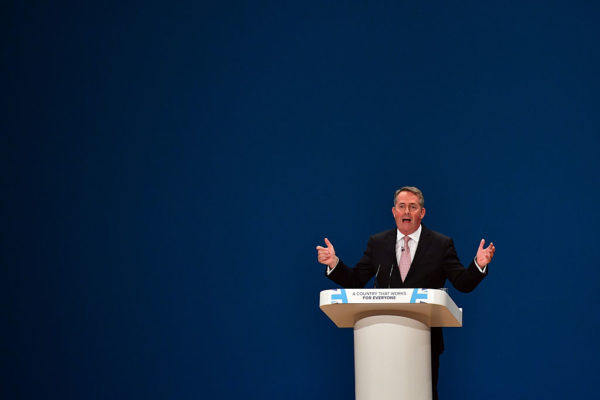New trade bill could give British politicians less power to scrutinise agreements than they enjoy in the EU

The UK government could agree post-Brexit trade deals without parliamentary scrutiny under plans laid out in a controversial white paper published last week.
Green Party MEP Molly Scott Cato told Unearthed the bill “makes a mockery” of the Leave campaign’s ‘Take Back Control’ rhetoric.
The ‘future trade policy’ paper sets out how the government will pursue trade deals once the UK leaves the EU.
It was one of two new white papers setting out Britain’s contingency planning for Brexit that were reportedly published in response to deadlocked negotiations in Brussels.
One section states: “we will ensure that parliament, the devolved administrations, devolved legislatures, business and civil society are engaged throughout.”
But critics fear that this would give British politicians less say on trade deals than they currently enjoy in the European Parliament.
Members of the European Parliament have had the ability to vote down or amend international trade deals agreed at the EU level, ever since the Lisbon Treaty came into effect in 2009.
In 2012, MEPs rejected the anti-counterfeiting trade agreement after widespread concerns about its impact on civil liberties, using these provisions.
As Sam Lowe, a trade expert at Friends of the Earth argues the white paper suggests the government won’t be legislating to give parliament a statutory role in the negotiation and ratification of future trade agreements.
He says: “It seems that they’ve substituted consultation for substantive engagement. Under existing rules, the government could negotiate a trade agreement, sign it, lay it on as a secondary legislation and parliament would not have the ability to say no to its ratification.”
Scott Cato goes further in her criticism of the bill: “The government’s secretive approach to Brexit extends into the trade deals that will shape our economy in the future after we have left the EU.
“Fox’s approach makes a mockery of the ‘Take Back Control’ mantra since it is pretty clear that he is drawing up plans for trade deals and even conducting negotiations entirely in secret.
“As Greens, we have been critical of the Commission’s undemocratic approach to trade negotiations like TTIP and CETA, but the new trade department and Liam Fox appear to be in a league of their own when it comes to excluding the public from decisions with a fundamental impact on our future.”
Britain has already looked to open trade negotiations with the United States, and American companies are openly looking to use a trade deal with the UK to get involved in British healthcare and agriculture.
Back in February, the Economist reported concerns that American healthcare companies could use Brexit as a route into the European market as part of what Labour politicians have called a “stealth privatisation” of the NHS.
In the summer, Unearthed reported that President Trump’s nominee to be the United States’ chief agricultural trade negotiator argued that the US should walk away from trade talks with the EU if the body refused to drop its ban on hormone beef imports.
Lawyers and politicians have expressed concerns about the lack of control parliament now enjoys over the Brexit process since Theresa May took the decision to invoke Article 50.
As legal commentator David Allen Green explains in this Twitter thread: “The UK will now, by simple operation of law, cease to be a member of the EU on 29 March 2019.”
https://twitter.com/davidallengreen/status/919827948915617794
Meanwhile, several prominent Conservative MPs have in the past spoken out about concerns that the Repeal Bill, which would see the UK copy EU law directly without parliamentary oversight, amounted to giving the government “Henry VIII style powers”.
It remains to be seen whether this bill will come to be viewed in a similar way.





Analysis: Fears of government power grab over post-Brexit trade deals
Joe Sandler Clarke